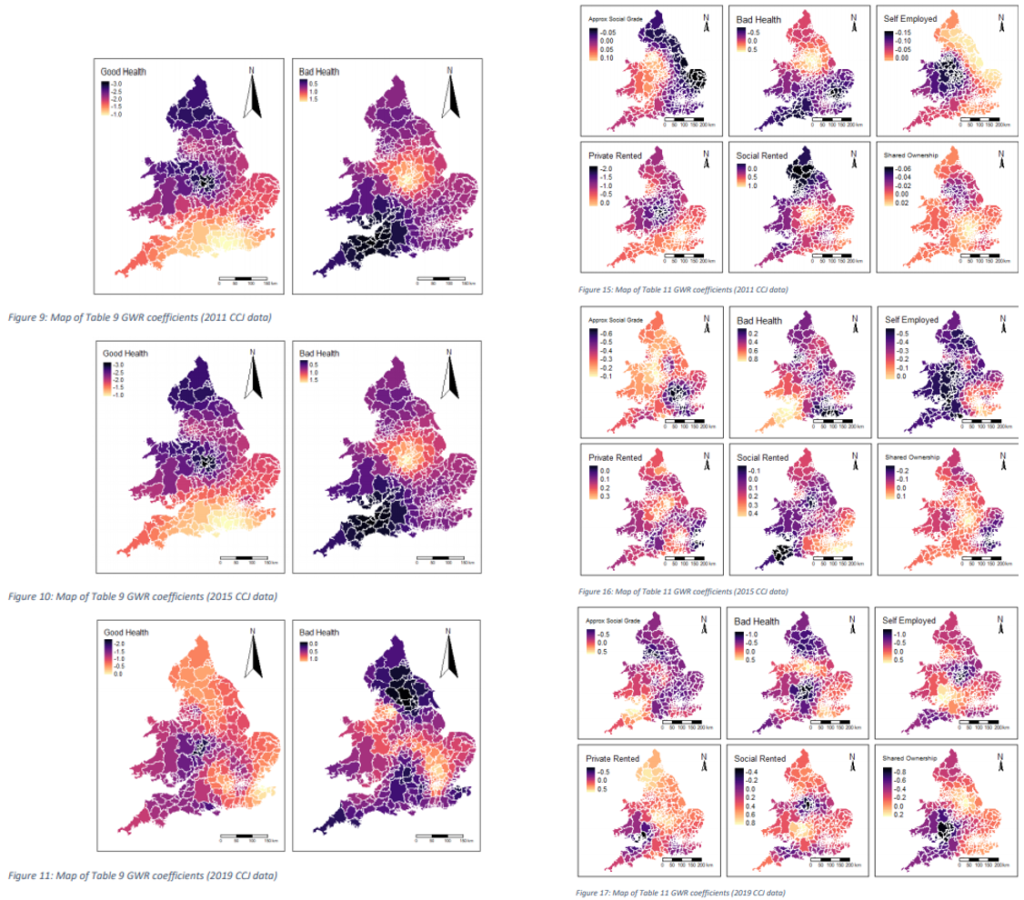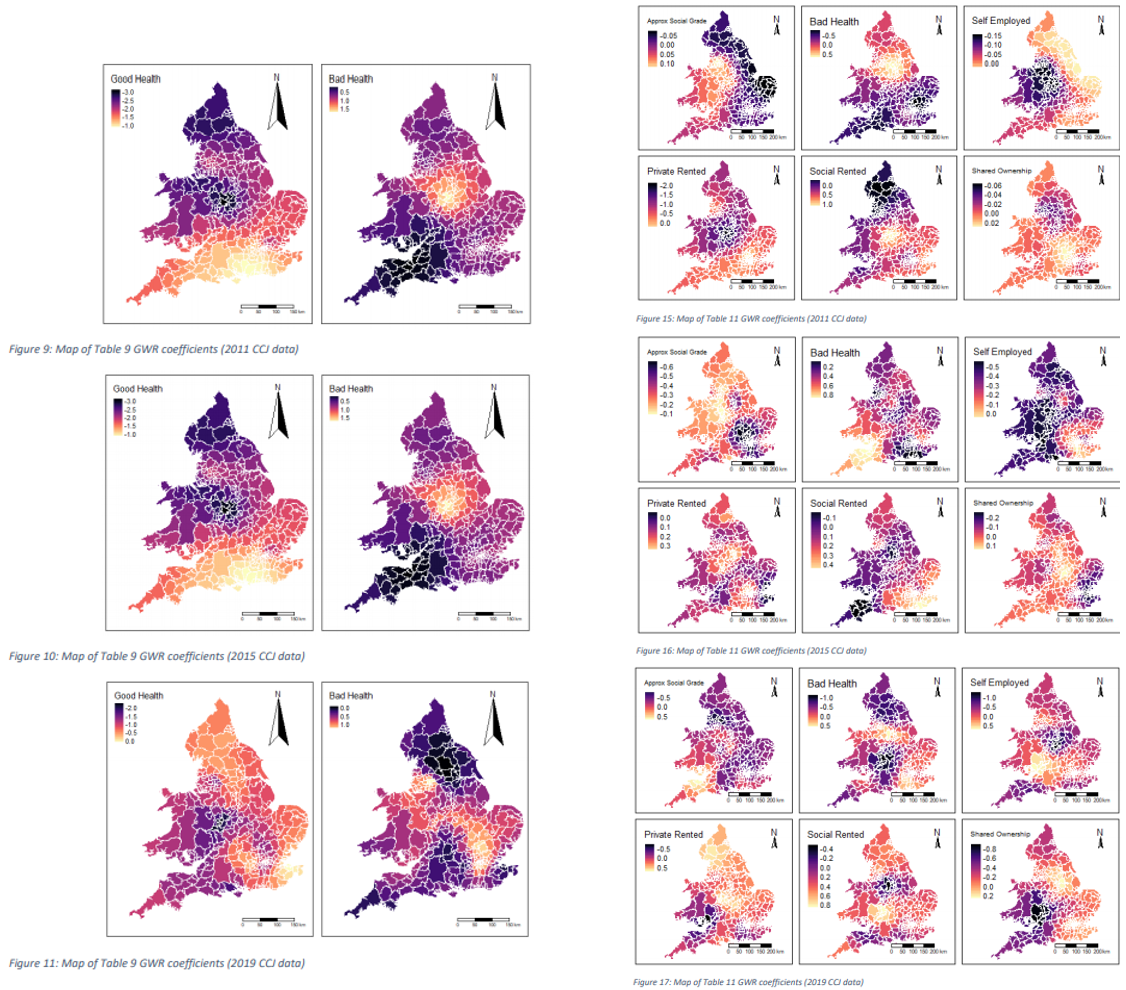Millie Corless completed her Master’s dissertation through the CDRC Master’s Dissertation Scheme (MDS) with the Registry Trust. I spoke with her after she completed her degree to find out what it was like. The scheme really appealed to her, and it was one of the parts of the MSc Geospatial Data Science (GDS) degree at University of Liverpool that convinced her to apply for that programme. Our industry collaborations allow us to provide projects that have real world impact, giving students the experience of working with a real world dataset, and feeding into the industry partner’s work.
The Registry Trust is a small company (~ 30 staff) and had one person in their data analytics team. Millie gave them the extra capacity to ask a MSc GDS student with skills and experience in GDS and coding to take one of their data sets which they hadn’t had much work done on it, and spend a significant amount of time analysing the data. The Registry Trust were fairly sure the data set had a good story within it, about the scale and patterns of county court judgements (CCJ) for indebtedness but they didn’t have the time or expertise to dig into it and find out the details. Offering the project through the CDRC MDS allowed them to get someone with the skills and time to do it.

Throughout the scheme, the projects vary but they always have some degree of flexibility for the student to focus the project on their areas of interest. For example, Millie is very interested in health and she looked at the CCJ data and explored its relationship with health. She met with a number of different people to develop and refine the project proposal, including her industry supervisor (the current data analyst) and others from Registry Trust, including the CEO and Chair. One of the benefits of working with a small company (30 staff) is that she was able to work closely with a range of staff members and they gave her great insights into working in industry. She felt like she was working within a bigger team for her dissertation: there was a group of people she could go to for advice, including her academic supervisor, her industry supervisor, and others within and outside the Registry Trust.
This project also had a great real world impact: the analysis Millie completed has fed into a blog post by the Registry Trust, and future projects and policy recommendations. The real world impact was one of the elements that Millie really liked about the Master’s Dissertation Scheme, and the Registry Trust project in particular. The fact this project already existed was a great help for Millie – “it allowed me to concentrate on the project rather than needing to come up with a topic. I also knew I was interested in health, so the flexibility within the project allowed me to include that in my research questions and analysis which was great.”

After the scheme, the position of Data Analyst within in the Registry Trust became available, Millie applied and is now working full-time for the Registry Trust. “I applied and was interviewed with a number of other candidates, but having taken part in the Master’s Dissertation Scheme, I already knew the data sets they were working with and the type of analyses they were interested in which gave me an advantage.” Her role as Data Analyst is developing the in-house skill set that the Registry Trust can utilise and will feed into a number of projects and outputs over the coming year.
Her recommendation to anyone considering applying for the Masters Dissertation Scheme is to “go for it”. The scheme gave her great experience and looks good on her CV, and going forward into any career (in industry or academia or elsewhere) the scheme shows you are interested in the application of the skills you have learnt and gives you experience of working with others in industry.
The Scheme will be open soon (November) for businesses proposing projects, and then available in the new year for Master’s students to apply. Please have a look at https://www.cdrc.ac.uk/education-and-training/masters-dissertation-scheme/ for more details.
More details on Millie’s research are available in the Registry Trust blog post and in her dissertation.
(Written by Dr Nick Bearman, Data Services Manager)

